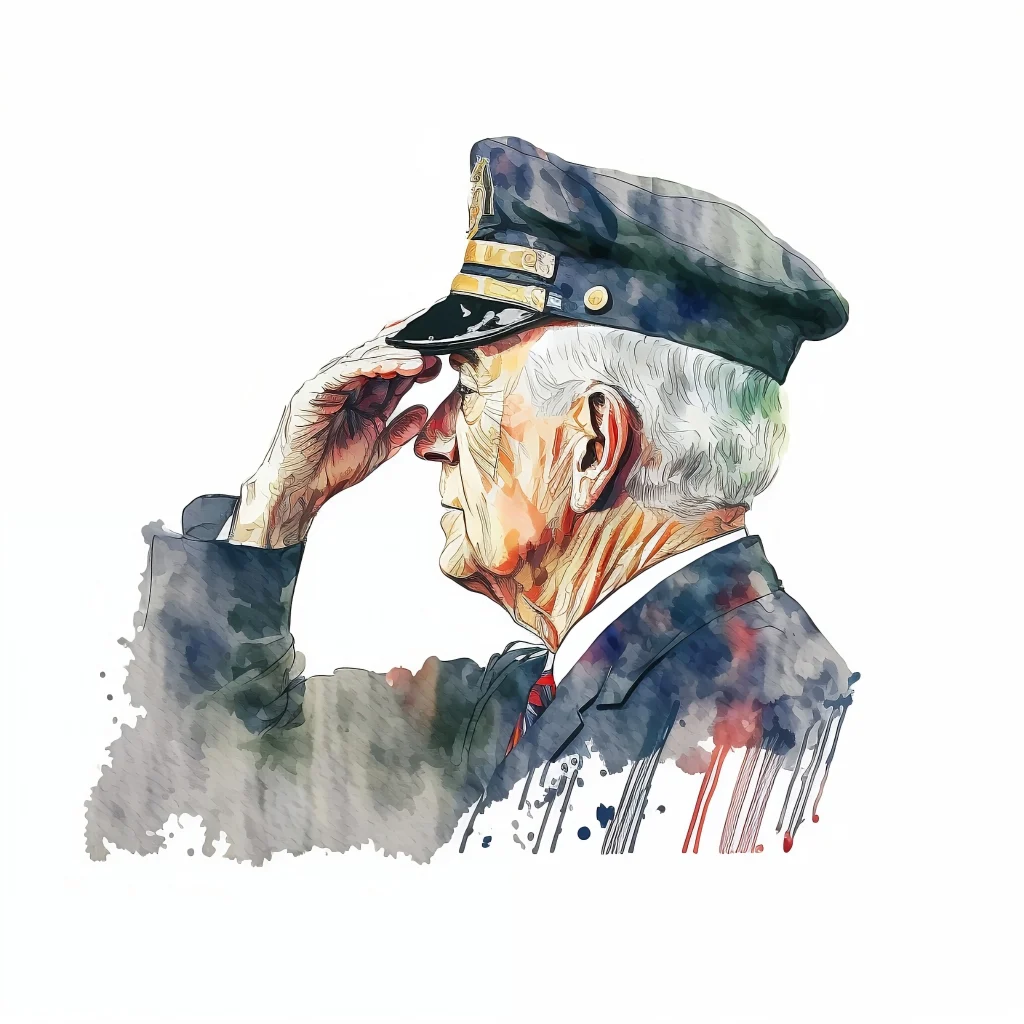Key Takeaways
Recent Posts
Categories
The Internal Battlefront: What Is It Like to Have PTSD?
Key Takeaways
For those suffering from PTSD, the piercing sound of a car backfiring can sound a lot like a gun, the sizzle of a grill like a grenade, and the rumble of thunder like distant artillery. Unexpected sounds, from war movies to fireworks, have the ability to rip a veteran back through time - to a moment when these sounds meant life or death. Though their service was more than a decade ago, they suddenly feel the weight of their combat gear, smell the choking scent of burnt explosives, hear the sharp cracks of gunshots flying overhead. Veterans often describe PTSD as an invisible burden of trauma, challenging to understand for civilians who have never experienced war. For those of us in the latter category, the question remains: what is it like to have PTSD?
Defining Post-Traumatic Stress Disorder (PTSD)
Post-Traumatic Stress Disorder (PTSD) is a profound mental health disorder triggered by experiencing or witnessing a traumatic event. Unlike other mental health conditions that might be the result of genetic predisposition or imbalances in brain chemistry, PTSD specifically emerges as a result of external events - it's the mind's response to situations that are so intense or traumatic that they defy our standard coping mechanisms.
One of the defining factors of PTSD is its indiscriminate nature. While PTSD most commonly develops in veterans, it can affect anyone, regardless of age, sex, race, or socioeconomic status. Whether it's the horror of combat, a violent accident, a natural disaster, or a deeply personal trauma like sexual assault, PTSD can develop as a result of any traumatic event. The impact of PTSD is pervasive, often seeping into every aspect of a sufferer's daily life, influencing their thoughts, emotions, interactions, and even their physical health.
What Are the Symptoms of PTSD?
Post-traumatic stress disorder (PTSD) can produce a diverse range of symptoms that can severely impact daily functioning, and understanding these is key to understanding the disorder itself. While responses to trauma can vary widely among individuals, common symptoms of PTSD include:
Vivid Flashbacks and Reliving Events: People with PTSD often experience intense, disturbing memories or sensations related to their trauma. Triggers can bring back the traumatic event in excruciating detail, making the person feel like they are reliving it.
Avoidance: People with PTSD go to great lengths to avoid potential reminders of their traumatic experience, including people, places, conversations, objects, or situations. This avoidance can lead to emotional numbing.
Negative Thoughts and Beliefs: PTSD often involves persistent, distorted beliefs about oneself, others, or the world, such as "I am worthless" or "The world is out to kill me." Trauma survivors may unfairly blame themselves and dwell in shame or guilt.
Hyperarousal or Reactivity: PTSD can lead to a continuous state of heightened arousal, including irritability, angry outbursts, recklessness, difficulty sleeping, being easily startled, and feeling “on edge.” This continual stress response can take an enormous toll on a veteran’s physical and mental health.
How PTSD Alters Brain Structure and Function
PTSD is more than just an emotional response to trauma; it involves measurable changes in the brain. Brain imaging shows that the amygdala, involved in threat response, becomes hyperreactive in PTSD. On the other hand, the prefrontal cortex, vital for decision-making and judgment, becomes suppressed. The hippocampus, related to memory, also shrinks, which may explain PTSD patients' difficulty distinguishing past from present threats.
The brain alterations caused by PTSD affect key aspects of functioning like reasoning, impulse control, and accurately assessing environmental threats. Fortunately, psychotherapy and medication can sometimes reverse these neural changes.
Misunderstandings About PTSD - Debunked
The stigma surrounding mental health conditions, in general, is profound. For soldiers, trained to be resilient and unyielding, admitting to such vulnerabilities can feel impossible. The weight of judgment, self-imposed or societal, forces many to suppress their struggles, leading them at times to unhealthy coping mechanisms like drugs or alcohol.
For PTSD, societal misconceptions only perpetuate misunderstanding of the disorder and its sufferers. Some believe it's a sign of mental weakness or that if you were just “strong enough,” you could overcome your mental health problems. In reality, PTSD is a biological and psychological response to severe trauma. It has nothing to do with strength or character.
Below are some of the most common misconceptions about PTSD:
“All veterans have PTSD”
While PTSD rates are higher among veterans versus the general public, the majority of veterans do not have PTSD. Assuming all veterans are mentally ill promotes stigma.
“Veterans with PTSD are dangerous and violent”
While PTSD involves symptoms like hypervigilance, veterans with PTSD are no more prone to violence than the average person. Falsely equating PTSD with violence further isolates veterans needing support.

“Veterans with PTSD are broken”
Language like "damaged goods" inappropriately labels veterans with PTSD. Veterans are whole people capable of recovery and growth, even if managing a mental health condition.
“Veterans should be able to handle trauma”
Soldiers are not superhuman. Constant exposure to trauma fundamentally challenges the human psyche. Expecting veterans to remain unaffected or mocking their response to trauma is disrespectful - and disregards the seriousness of what they’ve endured to protect your freedom and security.
“Veterans just need to tough it out”
PTSD is a real consequence of trauma with real physical and mental manifestations. Telling veterans to just "be strong" or "suck it up" discourages them from seeking treatment and impedes recovery. Compassion and clinical care are most effective.
Invisible Wounds: How PTSD Develops in Veterans
Persistent exposure to trauma fundamentally challenges the human psyche. Unfortunately, for those involved in combat, persistent exposure to trauma is the norm. Events like seeing friends die in combat, making split-second life and death decisions, sustaining grave injuries, or even taking a human life can prove psychologically devastating. Each traumatic moment compounds, increasing veterans' risk for PTSD.
Rather than single events, it is the accumulation of trauma and loss that often haunts veterans. The resultant survivor's guilt, grief, moral anguish, and severed social bonds lead to deep wounds not visible on the surface. Providing veterans high-quality mental health treatment is crucial.
“Doubt, Chaos and Terror:” Firsthand Accounts of PTSD
Persistent exposure to trauma fundamentally challenges the human psyche. Unfortunately, for those involved in combat, persistent exposure to trauma is the norm. Events like seeing friends die in combat, making split-second life and death decisions, sustaining grave injuries, or even taking a human life can prove psychologically devastating. Each traumatic moment compounds, increasing veterans' risk for PTSD.
Rather than single events, it is the accumulation of trauma and loss that often haunts veterans. The resultant survivor's guilt, grief, moral anguish, and severed social bonds lead to deep wounds not visible on the surface. Providing veterans high-quality mental health treatment is crucial.
“Triggers can come from anywhere at any time… a smell, a look/ glance, a vibe, a dream… how someone treats you. You are unable, as hard as you try, to turn it off.”
— Mike T.
“You know that feeling you get when someone jumps out and scares you and you are on high alert for a few minutes? That alertness never goes away for me.”
— Holly M.
“My nightmares when I’m asleep bleed into my daily life. At times after just getting up I’m unable to differentiate whether I’m awake or asleep. They feel so real, I even experience the physical pain in them. Then while I am at home if someone knocks on my door I could scream and start rocking back and forth.”
— Will D.
“You’re constantly on guard. You can never rest without thinking about something. I get panicked at the slightest thing that wouldn’t bother anyone like loud bangs or someone’s footsteps, or someone calling my name and I don’t know where it’s coming from.”
— Ross R.
“It’s like being trapped in a time capsule. Your surroundings change, but you’re forever in the state of your trauma — flashes of memories through all five senses, body memories, nightmares — it consumes your entire being...”
— Corey L.
“Imagine walking down the yellow stripe in the middle of a crowded street: it’s happy and sunny and everyone is doing everything great — but if you lose your balance or get pushed to the left side, it’s dark and scary. Few people know the left side.”
— Brynn L.
“It’s like living in a slideshow instead of a video. Everything is choppy and confusing. There’s doubt, chaos and terror night and day.”
— Adele E.

The Importance of Advocacy: Supporting Veterans With PTSD
There are a number of notable organizations that work tirelessly to support veterans with PTSD. These include institutions like the Veterans Administration, nonprofits like Wounded Warrior Project, and local veteran community centers.
If you’re wondering how to help veterans with PTSD, reading this post was already a great step towards understanding the disorder. If you have a loved one with PTSD, try to be patient, practice active listening, and encourage them to pursue treatment be it through therapy with a mental health professional or through other avenues of support. Finally, don't underestimate the simple act of offering a shoulder to lean on.
It’s essential to note that while many veterans receive assistance and compensation for mental health disorders from the Veterans Administration (VA), not all do. Sometimes, valid claims for PTSD get denied - that's where we step in. If you or a loved one’s disability application has been denied, call Wettermark Keith at 877-715-9300 for a free consultation. We take pride in ensuring our nation’s heroes aren't left behind - and helping them get the disability benefits they more than deserve.
Frequently Asked Questions
Living with PTSD can be a debilitating experience. Veterans affected by this disorder are continually haunted by their traumatic memories through flashbacks, nightmares, and intrusive thoughts. They tend to avoid anything that might trigger recollections of their trauma, which can lead to emotional numbness or isolation. PTSD impairs relationships, daily functioning and undermines one's sense of self - sufferers feel who they were before the trauma has been lost. Many suffer from constant hypervigilance, anxiety, guilt, depression, and sleep disturbances. Thankfully, with appropriate treatment and support, veterans with PTSD can reclaim their lives and find relief.
PTSD stands for post-traumatic stress disorder. It is a mental health condition triggered by experiencing or witnessing extremely traumatic, life-threatening events. Symptoms may include flashbacks, nightmares, severe anxiety, uncontrollable thoughts about the event, and avoidance of reminders. These symptoms persist for over a month and significantly impair daily functioning. While frequently associated with veterans, PTSD can result from any severe trauma.
PTSD is caused by exposure to exceptionally traumatic events involving actual or threatened death, serious injury, or sexual violence. Examples include combat, natural disasters, terrorist attacks, serious accidents, physical or sexual assault, or the sudden violent loss of a loved one. It is the exposure to trauma, not inherent weakness, that causes PTSD. The disorder results from the brain’s overactivation of fear and stress circuits, along with decreased function in parts of the brain that handle reasoning and decision-making.
While most people encounter trauma at some point, the majority do not develop PTSD. Each person has different coping abilities and brain structure that influence vulnerability. Factors like severity of trauma, having a strong support system, and receiving early treatment can help mitigate risk. However, those who do develop PTSD should not be viewed as weaker, as PTSD results from uncontrollable biological and psychological responses to trauma.
Common PTSD symptoms include re-experiencing the trauma through intrusive memories or flashbacks, avoiding trauma reminders, negative thoughts and feelings like shame or detachment, and ongoing hyperarousal seen in irritability, insomnia, being easily startled, etc. Sufferers may oscillate between emotional numbness and feeling overwhelmed by memories of their trauma. Other associated issues include depression, substance abuse, impairment in work and relationships, and suicidal thoughts.
Typically, mental health professionals diagnose PTSD by assessing symptoms for at least a month after a traumatic event, seeking to confirm that a significant change occurred after the trauma. To be diagnosed, a person must have all of one re-experiencing symptom, at least one avoidance symptom, two negative cognition/mood symptoms, and two hyperarousal symptoms. Symptoms must impair everyday functioning and not be attributable to medication, substances, or other disorders. Testing may also rule out medical causes or other conditions.
YOU DON’T HAVE TO DO THIS ALONE
CONTACT VA DISABILITY LAWYERS
To learn more about our law firm, our services, how to access our veterans law resources, and more, contact us today.
You get a free consultation and we won’t charge you a dime until we’ve won your case.


